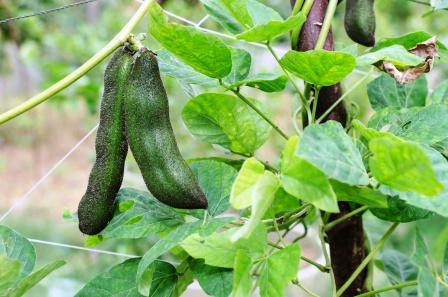
Table of Contents
Kapikachhu Plant
The kapikachhu plant is a native of India, where it grows in the mountains and deserts. Its small, S-shaped pods are up to two inches long and half an inch wide. They bear tiny hairs, though they are not easily detachable. Upon maturity, the pods change color from yellow to a steel-gray hue. Inside the pods are four to six black or brown seeds with a spotted appearance.
What Ayurveda says about kapikachhu plant
The Kapikachhu plant is used to improve the central nervous system, regulate the mood, and boost testosterone and dopamine levels. It also helps reduce stress and solve reproductive issues. In addition, it has beneficial properties for inflammation and Parkinson’s disease. It has several uses in Ayurveda. Read on to learn more about the Kapikachhu plant and its medicinal properties.
Its exudate contains low-molecular-weight organic compounds. It grows on steep Himalayan rock, and is considered a health-promoting agent in Ayurveda. Traditionally, Kapha is used for respiratory disorders, genital infections, and diabetes. But it is also used in traditional medicine for stomach and bronchial disorders.
Morphology of kapikachhu plant
Kapikacchu, also known as cowhage, is an annual, hairy pea-like climber that grows in tropical regions. Its common name reflects its aphrodisiac properties – it makes monkeys itchy. In the Brazilian language, it’s known as Mucuna and the Latin name Pruriens means itch. The plant’s seeds are used for their medicinal value, as well as for pacification of all three doshas.
Despite its name, kapikacchu is an adaptogen, nutritive tonic, and aphrodisiac. Its seed is a natural source of levodopa, a precursor to dopamine, which is widely praised as a mood-lifter. Its velvet-coated hairs can irritate the skin and cause itchiness.
Medicinal values of kapikachhu plant
The Kaunch Beej, the seed of the Kapikachhu plant, is a potent aphrodisiac. It raises sperm count and enhances sexual desire. Its other qualities include improving nervous system function and lowering inflammation. The Kaunch Beej is the most common part of the Kapikachhu plant, also known as cow hedge, kapikacchu in Sanskrit, lacuna bean, and velvet bean.
In Ayurveda, the Kapikachhu is valued for its medicinal properties. Medicinal applications include regulating blood pressure, improving memory and mood. The plant also increases bioavailable testosterone in the body, which plays a central role in libido. While the Kapikachhu plant is often used as an aphrodisiac, recent studies have revealed its limited efficacy.
The plant is very nourishing, improves strength and immunity, decrease stress, anxiety levels and enhances the mood,
Health benefits of kapikachhu plant
The Kapikacchu plant is a versatile herb with health benefits. It grows widely in Asia, Africa, tropical Asia, and the USA. In India, it grows wild at high elevations, including the Himalayas. It is also found on the eastern and western coasts. Many of its benefits are derived from its anti-inflammatory, analgesic, and antioxidant properties. Here are some of its benefits:
The leaves of the kapikacchu plant, also known as velvet bean, contain 11-23% crude protein and 35-40% crude fibre. In addition to balancing the body’s systems, Kapikacchu is known for its anti-inflammatory effects. It also promotes mental focus, increases concentration, and helps prevent the signs of aging, such as wrinkles and hair loss.
It curbs vata dosha and has a good effect on neurological disorders, increases sperm count, virility, enhances ovulation in women.
Precautions taking kapikachhu plant as medicine
Always take the medicine under the guidance of a qualified Ayurvedic Doctor. In some patients it may cause constipation or acidity. Children, Lactating Mother, Pregnant women etc should not take this medicine. Capsicum annuum is a multifaceted plant, with many uses in Ayurveda, from aphrodisiac to neuromuscular disorder. The plant’s oil is sweet, heavy to digest, and astringent. The root decoction induces menstruation by constricting the vagina. Preparations of this plant include kapikacchu pak, Vanari kalpa, and kapikachhu choorna.
